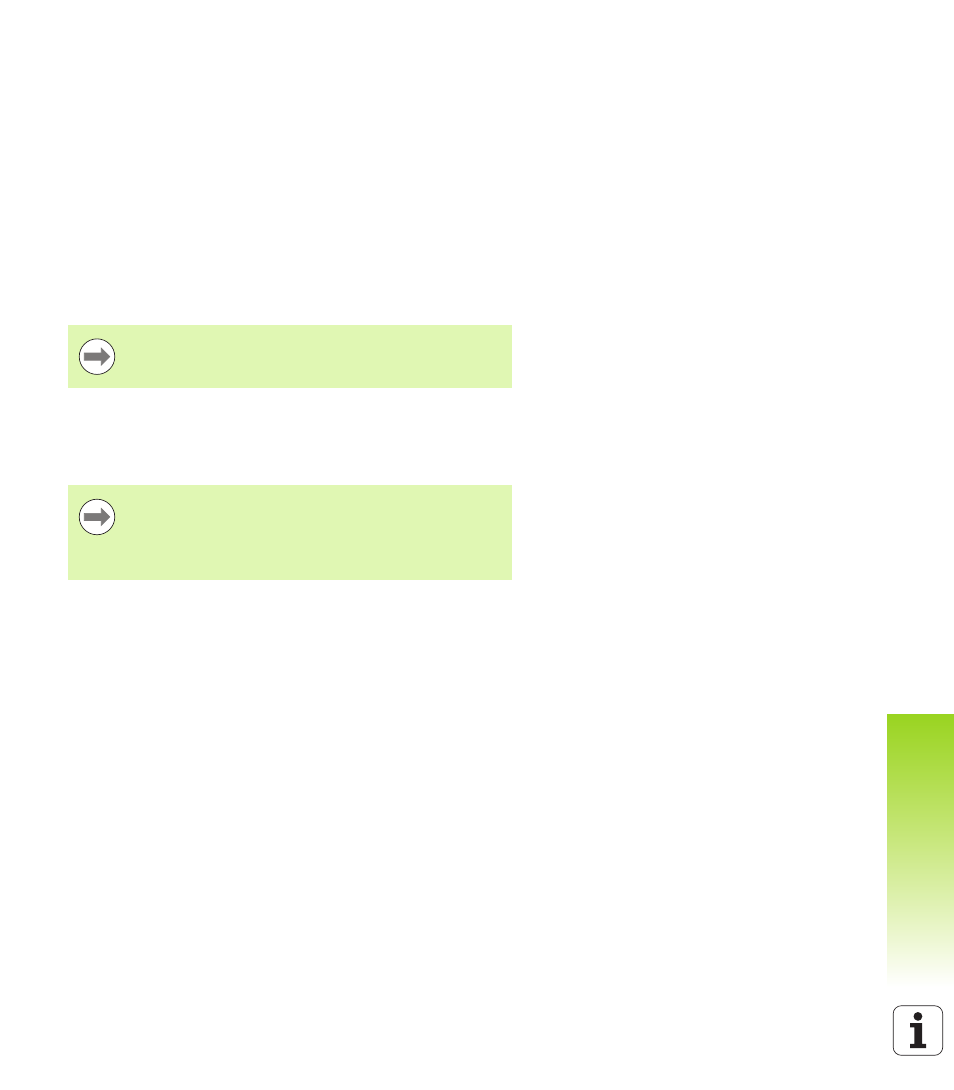Starting a non-linear error compensation table, Reading the graph, Ii - 2 installation set up – HEIDENHAIN ND 780 Benutzerhandbuch
Seite 217

ND 780
93
II - 2 Installation Set
up
Starting a Non-linear Error Compensation Table
Establish the start point for the compensation table by positioning
the axis to its furthest travel in the negative direction.
Open the Installation Setup menu, and select Error Compensation,
press ENTER. Select Non-linear by pressing the TYPE soft key.
Start a new error compensation table by pressing the EDIT TABLE
soft key.
Arrow down, and high light START POINT, press ENTER.
With START POINT high lighted on the Error Comp form, press
TEACH POSITION, then press ENTER.
Press the UP ARROW key, and high light SPACING, press ENTER.
Enter the distance between each of the correction points, press
ENTER. All correction points (up to 200) are equally spaced from the
start point in the positive count direction only.
Enter the known error which exists for each point. Press ENTER.
When completed, press the SAVE soft key to save the table. Press
the C key to exit the edit operation. Continue to press C to return to
main display.
Reading the Graph
The error compensation table may be viewed in table, or graphical
formats. Press the VIEW soft key to toggle between views. The graph
shows a plot of a translation error vs. measured value. The graph has
a fixed scale. As the cursor is moved through the form, the location of
the point on the graph is indicated with a vertical line.
Choose a spacing that covers the portion of, or the full
encoder length that error compensation should be applied
to.
The inherent count direction always remains the same
regardless of how the count direction is set up in the for the
encoder in the Installation Setup form. The Error
Compensation table always reflect the inherent count
direction.